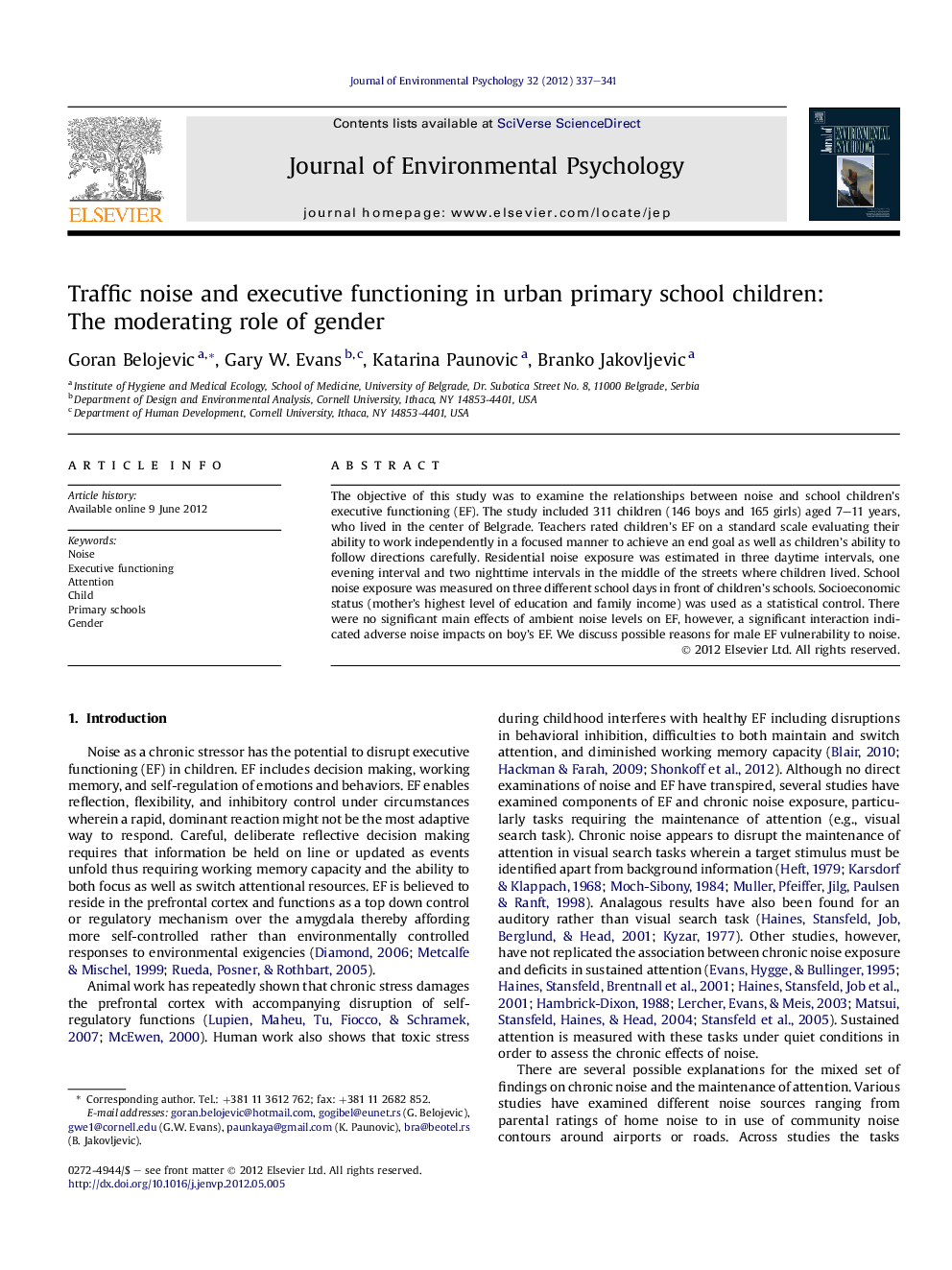| Article ID | Journal | Published Year | Pages | File Type |
|---|---|---|---|---|
| 885630 | Journal of Environmental Psychology | 2012 | 5 Pages |
The objective of this study was to examine the relationships between noise and school children's executive functioning (EF). The study included 311 children (146 boys and 165 girls) aged 7–11 years, who lived in the center of Belgrade. Teachers rated children's EF on a standard scale evaluating their ability to work independently in a focused manner to achieve an end goal as well as children's ability to follow directions carefully. Residential noise exposure was estimated in three daytime intervals, one evening interval and two nighttime intervals in the middle of the streets where children lived. School noise exposure was measured on three different school days in front of children's schools. Socioeconomic status (mother's highest level of education and family income) was used as a statistical control. There were no significant main effects of ambient noise levels on EF, however, a significant interaction indicated adverse noise impacts on boy's EF. We discuss possible reasons for male EF vulnerability to noise.
► Executive functioning in boys was negatively related to residential road traffic noise. ► No significant relationship between road traffic noise and executive functioning in girls. ► Socioeconomic status was the main covariate in noise-executive functioning effects.
